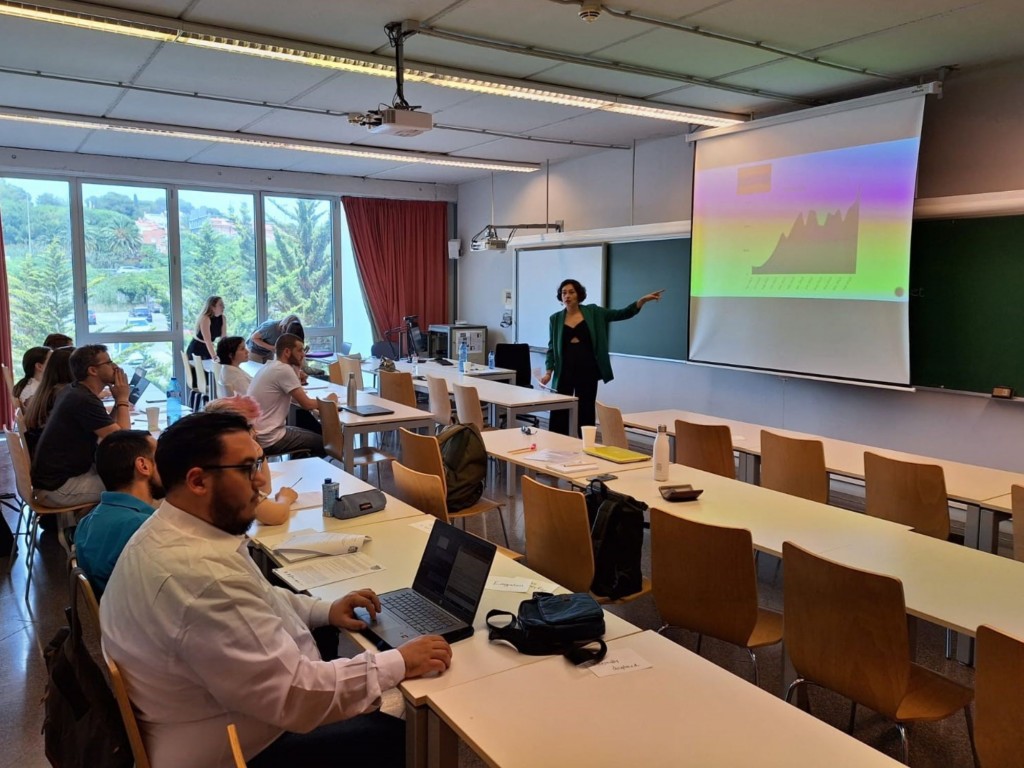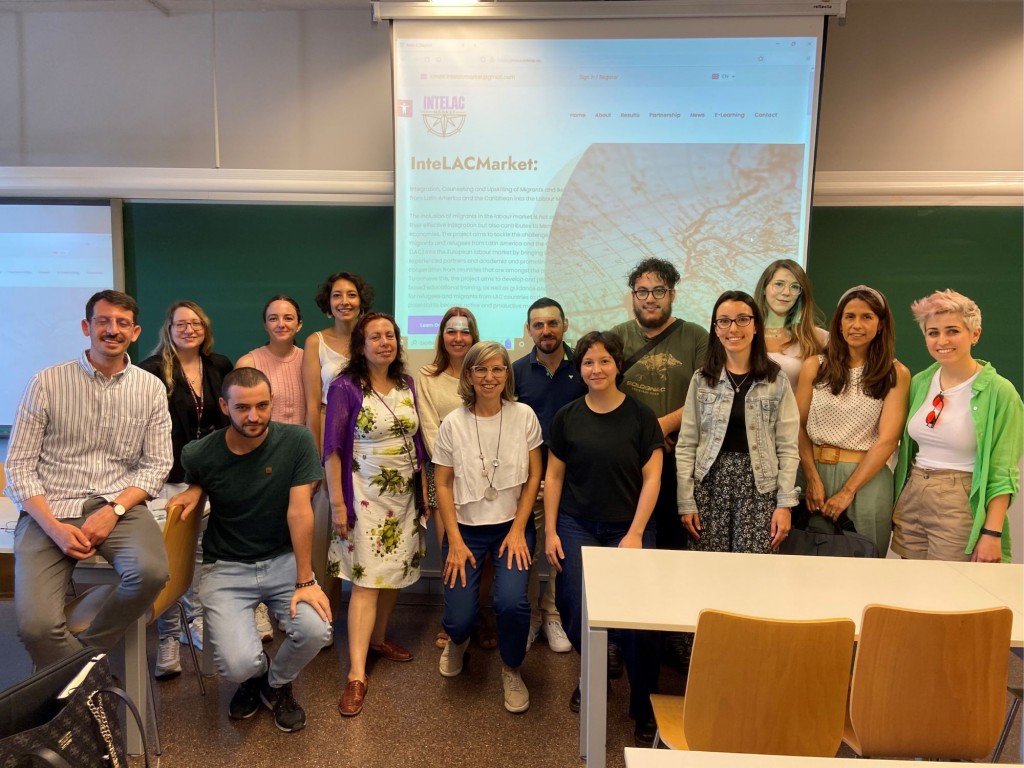22/06/2023
A study identifies the main barriers facing migrants and refugees when arriving in Europe
The research by the URV’s SBRLab group focuses on people from Latin America and the Caribbean. The results have been presented at a conference in Tarragona

The research by the URV’s SBRLab group focuses on people from Latin America and the Caribbean. The results have been presented at a conference in Tarragona
Migrants and refugees from Latin America and the Caribbean tend to have higher unemployment rates, occupy less qualified jobs (not always due to lack of qualifications) and suffer from poor working conditions. These are the results of the initial research by the European project InteLAC Market, led by the URV research group SBRLab (Social & Business Research Lab) coordinated by the researcher from the Department of History and History of Art of the URV, Inma Pastor. The conclusions of the study, which was carried out jointly with a consortium of several European universities, were presented as part of the Conference on Migration and Social Inclusion that is taking place until Friday on the URV’s Catalunya Campus.
The main objective of InteLAC Market’s project “Integration, counselling and upskilling of migrants and refugees from Latin America and the Caribbean into the labour market”, is the development of tools to facilitate the social and labour inclusion of migrants and refugees from these countries.
The multidisciplinary study has identified the main barriers facing these migrants when they arrive in Europe and what they need to enter the labour market in the various countries of the consortium, including Austria, Belgium, Spain and Italy.
Among the most significant barriers are the difficulties of regularizing their residence permit, the bureaucracy involved in homologating qualifications, the lack of work experience in the host country and the stigma and discrimination by companies. All this results in a precarious employment situation that makes it necessary to adopt an integrated approach to the problem, which takes into account all the factors that can influence the employment situation of these people.
“The conference where we presented the preliminary results of the study was an opportunity for an exchange of ideas and experiences in the field of migration and labour inclusion,” explains researcher Inma Pastor. During the conference, examples of good practices were also presented, thus providing a more complete view of the current situation and possible paths towards improvement.

In the conference, which ends this Friday, several experts in the fields of migration and inclusion have participated in conferences and round tables, encouraging reflection on how to help overcome the barriers of the group through the use of tools that can be promoted from the public and private sectors.
“Initiatives like this one demonstrate the important role of universities in the study and solution of complex social problems such as the labor inclusion of migrants and refugees,” Pastor adds. “Through research and the exchange of ideas, the university continues to work to provide significant solutions to this social challenge,” the researcher concludes.
